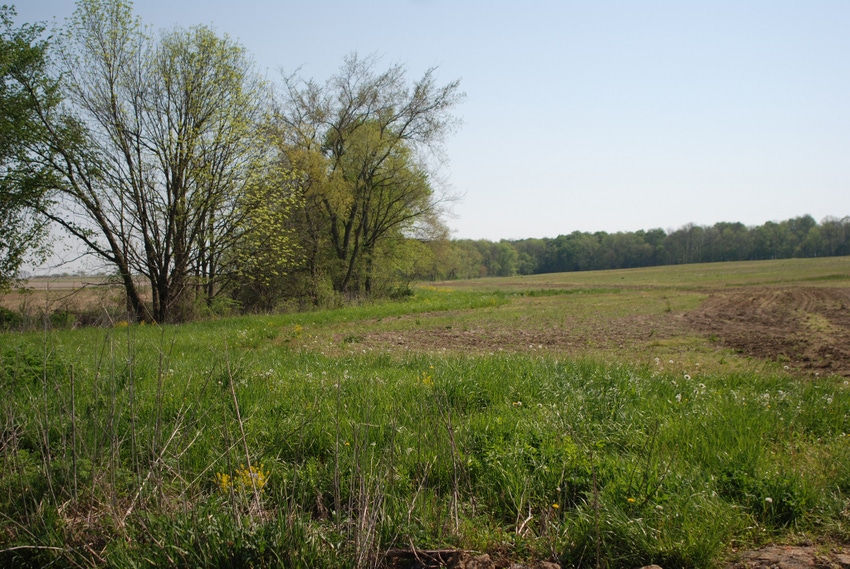Legislative Watch: Only 1.3% prime farmland; no favored nation status for Russia; Indo-Pacific Economic Framework; American Beef Labeling Act; EPA nominations.

With the disruption in global trade and the loss of production caused by the war in Ukraine, a group of agricultural organizations and various Senators are calling on USDA to allow farmers to plant crops on prime farmland that is enrolled in the Conservation Reserve Program.
In response to the agricultural organizations' request, Secretary of Agriculture Tom Vilsack said USDA would not open CRP to planting crops. Vilsack said in a letter to the group, "… that only 1.3% of prime farmland is enrolled in CRP; moreover, the prime farmland acreage in CRP has been decreasing since 1992.
"Instead, high prices for this year's crops will motivate producers to plant more acres of wheat, soybeans and corn, with the main limiting factors being weather and soil moisture conditions. USDA ensures that producers with land coming out of CRP are presented with all available options, including transitioning some of those acres to other working lands conservation programs. There is no need to step in and adjust the program when producers themselves are making decisions based on market conditions and environmental realities."
The agricultural group in the letter to Vilsack said, "As USDA examines all available tools to address this looming commodity supply challenge, we urge you to provide flexibility for acres within the CRP. The United States needs to produce more grain and oilseeds to offset the loss of Ukraine's grain and sunflowers. Time is of the essence. The planting window in the United States has already opened in some southern regions and will spread quickly north as we enter spring.
"We urge USDA to provide flexibility to producers to plant crops on prime farmland as well as the least environmentally sensitive acres currently in the program without penalty, whether on an emergency basis or through an early-out of their current CRP contracts."
Those signing the letter were the American Bakers Association, American Farm Bureau Federation, Agricultural Retailers Association, National Grain and Feed Association, National Oilseeds Processors Association, North American Miller's Association and North American Export Grain Association.
Congress ends most favored nation status for Russia
In a strong bipartisan vote to show their outrage towards Russia's invasion of Ukraine, Congress passed legislation to remove most favored nation status or permanent normal trade relations with Russia and Belarus. This will allow the U.S. to increase tariffs on goods from those two countries.
Congress also passed legislation that bans the imports of oil, gas and coal from Russia. This codifies President Biden's action last month to ban Russian energy imports in response to Russia's invasion of Ukraine.
Prioritize agriculture in Indo-Pacific Economic Framework
As the administration moves forward on developing an Indo-Pacific Economic Framework, a bipartisan group of 87 Representatives are calling on the administration to make agriculture a priority.
In a letter to U.S. Trade Representative Katherine Tai and Secretary of Agriculture Tom Vilsack, the group said, "This dynamic region provides opportunities for our agricultural producers whose exports will be highly valued by growing economies. Prioritizing agriculture in Framework discussions will benefit both domestic farmers and ranchers and consumers here and abroad."
The Members call on the administration to address the various trade barriers that U.S. agriculture faces in the region. They also asked that Framework include efforts to reduce tariffs on U.S. agricultural exports to improve U.S. competitiveness in the region.
Reps. Jimmy Panetta (D-CA), Jodey Arrington (R-TX), Jim Costa (D-CA), Dusty Johnson (R-SD), Ron Kind (D-WI) and Randy Feenstra (R-IA) led the effort on the letter.
The letter was endorsed by a number of agricultural organizations including the American Farm Bureau Federation, American Soybean Association, Biotechnology Innovation Organization, Corn Refiners Association, International Fresh Produce Association, National Association of State Departments of Agriculture, National Association of Wheat Growers, National Cattlemen's Beef Association, National Corn Growers Association, National Council of Farmer Cooperatives, National Milk Producers Federation, National Oilseed Processors Association, North American Meat Institute, Northwest Horticultural Council, U.S. Dairy Export Council, Western Growers Association and Wine Institute.
The Indo-Pacific Economic Framework is for the United States and countries in Southeast Asia, including Japan, Singapore, Malaysia, New Zealand, South Korea and India, to counter China's economic influence in the region.
American Beef Labeling Act
Representatives Lance Gooden (R-TX) and Ro Khanna (D-CA) have introduced legislation, the American Beef Labeling Act, that would reinstate mandatory country of origin labeling for imported beef.
The bill is similar to the bill introduced in the Senate by Senators John Thune (R-SD) and Jon Tester (D-MT).
Congress repealed COOL in December 2015 after the World Trade Organization ruled in favor of Canada and Mexico that the U.S. COOL rule discriminated against Canadian and Mexican livestock and violated international trade laws. Canada and Mexico still have the right under the WTO ruling to impose $1.1 billion in tariffs against U.S. products.
EPA Farm, Ranch and Rural Communities Advisory Committee nominations
The Environmental Protection Agency is seeking nominations for its Farm, Ranch and Rural Communities Federal Advisory Committee.
The committee established in 2008 provides policy advice, information and recommendations to the EPA Administrator on environmental policies that are important to agriculture and rural communities.
Committee members may represent farmers, ranchers and rural communities; allied industries, including farm groups, rural suppliers, marketers and processors; academia and researchers; state, local and tribal government; and nongovernmental organizations. The deadline for nominations is May 16. Nominations should be submitted via email.
Source: P. Scott Shearer, who is solely responsible for the information provided, and wholly owns the information. Informa Business Media and all its subsidiaries are not responsible for any of the content contained in this information asset. The opinions of this writer are not necessarily those of Farm Progress/Informa.
About the Author(s)
You May Also Like



